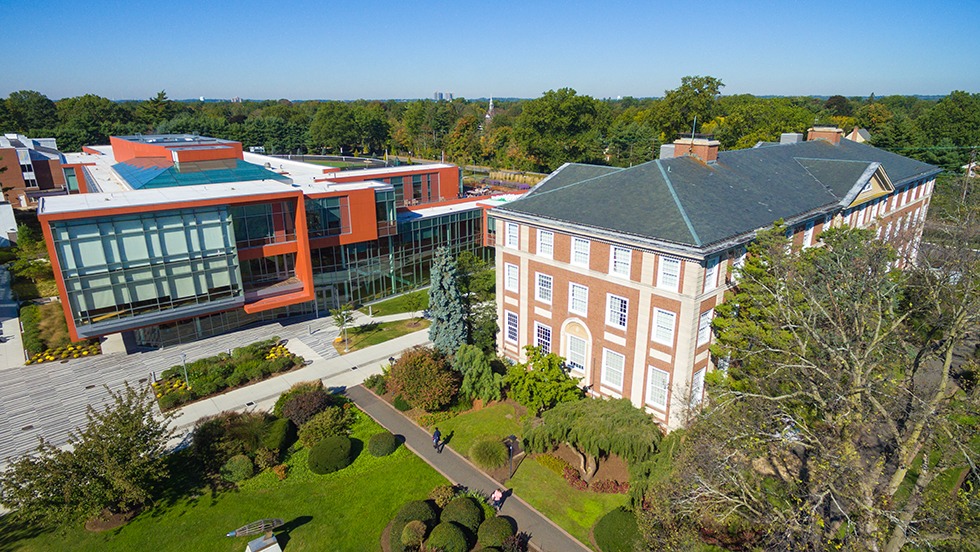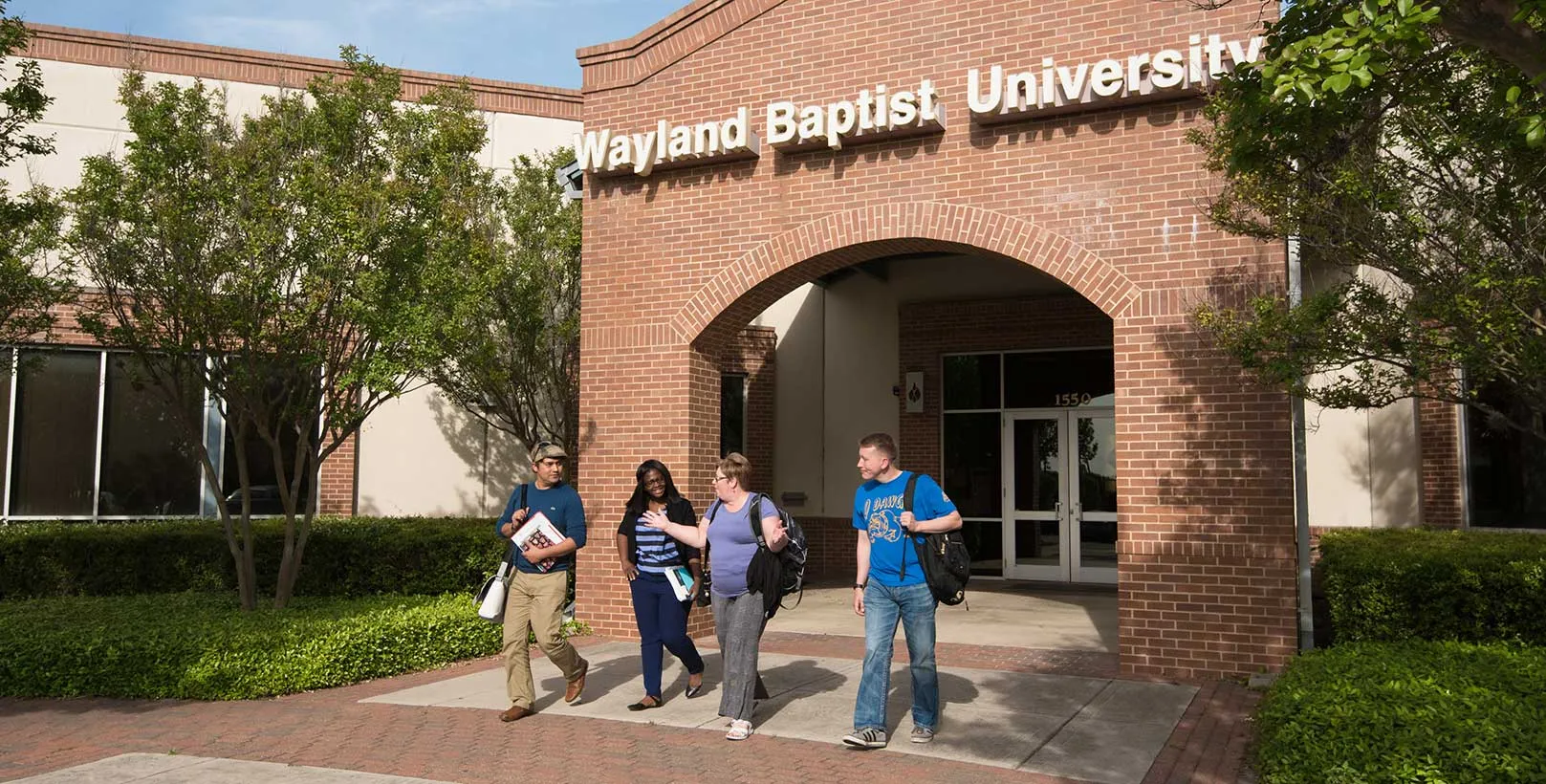Studying in the USA is a wonderful and easily achievable dream. It is no secret that the US is world renown for top educational institutions, avant garde technology, and methodologies to match the growing demand for excellence in this dynamic world.
From where you are it may seem like a pipe dream. But I assure you that you are in the right place. This is the best resource to understand all you need to know about studying in the USA, particularly for Ph.D. candidates.
By the time we’re done, you’ll know why a PhD in the USA is unlike any other. You’ll also learn how to apply for a PhD in the USA and the PhD requirements in the USA for international students.
But first things first. Let’s lay a little foundation.
Studying in the USA: Overview
First off, according to the statistics forwarded by the National Centre for Educational Statistics, there are 3,982 colleges and universities in the USA. I know there are resources citing over 4500 colleges but quite a number did close over the Covid pandemic period.
There are approximately 282 universities offering PhD programmes. Trust me, these are enough.
Check this out; close to 1.1 million foreign born students enrolled in the 2019-2020 academic year. These students were from nearly 200 countries with China and India taking more than half the number. So, you will not be the only one pursuing a PhD in the USA. This, in case you missed it, is a way to indicate that gaining entry is quite competitive.
So, why the USA; why not the UK or Europe?
Reasons to Pursue PhD in the USA
As you do your research you’ll realise there is something about studying for PhD in the USA as opposed to any other country. Just to give you an idea; did you know that there are more British students studying for PhD in the USA than in their own country? Why?
1. World-Class Universities and Colleges
It goes without saying that the USA is incredibly advanced in pretty much all things. Worth mentioning is the substantial investment the USA has made into their education system on matters of research, innovation, technology et al. Time and again world university ratings are dominated by USA-based universities and colleges. So, as a savvy professional, acquiring a doctorate from an Ivy League School or any other USA University is a huge leg up in the marketplace.
2. International Community
As earlier alluded, the USA Universities and Colleges attract quite a number of international students. You will have a lot to learn and experience. That you will be a foreign student will never be apparent; you’ll fit right in.
3. Expansive Opportunities
As you will soon find out, the USA doctorate demands much more than research and dissertation. In a bid to produce a well-rounded PhD graduate, the US education system will demand off-the-beaten-road activities like volunteering and completing work. So, how amazing that you will be literally in the “land of opportunity”. Whether you need opportunities because of the research you have to do or if you desire to do more than simply study you’ll be in the hub of opportunities.
4. Innovation
More than all the other education programs, the USA stands out for their approach to studying for a doctorate degree. Thanks to the structured doctorate degree program, the USA is the 2nd country in the world to adopt the modern PhD degree program, right behind Germany.
5. Variety
The USA is a vast country spanning 50 states and 6 time zones. This means that no matter what you need to research it is likely that you will be able to find it.
Now, these are just the general reasons for studying for any course in the USA. We’ll tackle PhD-specific advantages in a later section.

USA Academic System Breakdown
We mentioned in passing that a doctorate degree in the US takes approximately 4-6 years. The academic year runs from August to May. Some universities will run two semesters while others will have three trimesters.
For the sake of all our readers, we’ll briefly discuss how to get to the doctorate the USA way.
First Level: Bachelor’s Degree (Undergraduate)
An undergraduate program is a 4-year program to acquire a Bachelor’s degree. These four years are usually split into two main courses; 2 years to study the foundational prerequisite courses and the final 2 years to study a “Major” course.
Undergraduate students can acquire an Associate of Arts (AA) transferable degree from a Community College which is equal to the first 2 years of the Bachelor’s degree. So with a transferable AA you can go right ahead and choose a “Major” and proceed from the 3rd year of the Bachelor’s degree program.
Second Level: Master’s Degree
The truth is, most international students can only begin at this level. To acquire a Master’s degree you’ll spend between 1-2 years depending on the specific program. For instance, an MBA takes 2 years while a Master’s Degree in Journalism takes a year.
If you’re starting here, you may be required to take a Graduate Record Examination (GRE) to acquire admission. Some Master’s degree programs require specific exams. These include LSAT for law school, GMAT for business and management school, MCAT for medical school, and DAT for dental school.
Third Level: Doctorate Degree (PhD)
We mentioned that a PhD in the USA takes 4-6 years. You can choose to study for a Master’s degree first before going for the PhD program, or simply apply for a direct doctorate degree.
Herein lies the difference. While a majority of PhD programs focus on the dissertation and research, the USA PhD program uses a holistic approach which means you’ll go through coursework first and then the research phase.
For this very reason, the PhD degree program takes longer in the USA than in the UK or Europe.
What does a Ph.D. in the USA entail?
For a 4-6 year course, it’s important to have an idea what to expect. While universities outside the USA allow you to begin research on your dissertation right in the beginning of your doctorate program, the USA PhD program is divided into two phases.
1. Coursework
This phase takes 1-4 years. Here, you will cover core classes and elective classes. This is basically a time to enrol in classes and attend seminars.
The core classes will be pretty much like those of the Master’s degree program geared at laying a knowledge base. You will cover key concepts, research techniques, subject knowledge and so on.
Then there will be elective classes. As you can deduce, elective classes are optional and you get to choose which ones you want. But you have to attend enough to satisfy the credit requirement for your program. These classes encompass characteristic training designed to help you with your latter research phase.
During the coursework phase, you may be required to engage in personal and professional development exercises including learning a foreign language, volunteering, and completing work.
At the end of the coursework, you will take an exam known as “Field Exam” or “Dissertation Qualifying Exam” which includes a research paper or thesis.
Any student can at this stage acquire a Master’s Degree if they didn’t already have one. A student may drop the course at this point if his/her pursuit was a Master’s Degree.
2. Research and Dissertation
Finally it’s time to settle on a topic of research. You can stick to the topic alluded to in your initial application or, on the authority of what you’ve covered in the coursework you can choose a fresh topic.
You’ll have a chance to introduce your topic in a dissertation prospectus. This is somewhat similar to the research proposal submitted as you apply for a typical PhD in other countries. As you can probably guess, you have to outline your topic of research, methodologies, projected results, and bibliography.
After your research proposal is approved, the rest of your research and dissertation is pretty much like other PhD projects. You will however be expected to take part in other development projects alongside your research. For instance, you may be required to teach or do administrative work as well as submit an academic article for publication in a peer-reviewed journal.
What Makes a USA PhD Stand Out?
- Structured degree program
The USA-taught PhD is very structured. Expect regular assessments in the course of your PhD.
- Comprehensive training
Rather than focus on the research, PhD programs in the USA seek to produce well-rounded graduates, multilingual, and well-versed in foundational knowledge.
- Unique creative current method
The USA education authority adapted a modern PhD thus making this program unique and innovative.
- Regular courses
Coursework includes both elective and core classes. These classes provide sufficient preparation and baseline for the research and dissertation
- Student evaluation
A PhD taught in the USA is more of a taught degree than a student-research driven paper. When you finally stand to defend your topic, it will be from a meticulously constructed knowledge base rather than sheer research.
Factors to consider when choosing a University in the USA
- Availability of your preferred PhD program
- University ranking
- Graduate school faculty and staff reviews
- Employment opportunities
- Research facilities
- Tuition
- Available scholarships for international students
- Location
Fees and Funding
As we’ve already discussed, colleges and universities in the USA are in two categories; public and private.
It goes without saying that the private universities would be more expensive than their public counterparts.
However, to conclude that the fees are far out of reach couldn’t be further from the truth. In essence, a PhD degree in a public university would cost about $12,500 while the same would cost approximately $26,600 in a private university.
Better still, there are numerous tuition scholarships, fee waivers, stipends, fellowships, and assistantships waivers to be had. It’s in fact very rare for any PhD student to pay their full tuition.
For instance, here is an excerpt from Illinois University just to give you an idea of the waivers.
Image: UniversityofIllinoishandbook
How to Apply for a PhD in the USA
Most universities have within themselves Graduate Schools to which PhD students apply. So, as you prepare to apply for a PhD in your university of choice, bear in mind you may be required to apply to the specific Graduate School rather than to the larger University body.
In addition to this, here are more pointers to keep in mind:
- These universities receive countless applications yearly. For this reason, pull all the stops. Study carefully the application requirements to ensure you put your best foot forward.
- As you’ve discovered, the PhD program is more about learning than research, so in your application highlight your suitability for the PhD program in the light of character and personal potential rather than the topic of your research.
What you need to apply for a PhD in the USA
- A completed Application Form.
- Academic Credentials: You will need a detailed record of all your work. This includes all the transcripts from your Bachelor’s and Master’s degree, specific modules, and all the grades you attained.
- Personal Statement: This statement details your interest in the PhD program-why you are applying for it and how you are suited for it. Include your personal interests because the board will be looking for a well-rounded, well-adjusted individual of a commendable moral character.
- Letters of Recommendation: You may end up submitting 2 or 3 letters of recommendation depending on the university and your specific field of study. Be aware that most boards are looking for enthusiastic referees who are eager to recommend you.
- Test Scores: There are various test scores you may need to supply beforehand. These include GRE, LSAT, DAT, GMAT, and MCAT depending on the subject of your PhD.
- Language Proficiency: If English is not your first language you may need to prove that you are proficient by taking an TOEFL or IELTS test. However, there are countries that have English as a Second Language who may be exempt from these tests or who have to take ESL tests upon admission.
- Research Statement: Even though this isn’t required for all PhD programs, if it is required for your specific degree only give an implicit allusion to the topic you’d like to pursue. As we have seen, the final topic for research will be developed halfway through the PhD program.
- Writing Sample: This isn’t a requirement for every PhD degree, but some programs may require a written essay on a specific topic. Most times if you did an essay it will be discussed at your interview.
- Resume: A well formatted updated CV
Admission Requirements
While many universities require a Master’s degree to admit you to a PhD program, USA universities don’t really insist on it. This is because you can acquire your Master’s degree in the course of studying for your PhD degree.
Now, if you already have a Master’s degree, your Graduate School of choice will grade your Master’s degree to ascertain whether or not you qualify for their PhD program.
The USA education system grades the performance of students using the GPA (Grade Point Average) system. Rather than place a single grade to your entire Master’s degree, GPA combines all the individual assessments garnered throughout your study.
The ballpoint GPA is 3.0 or thereabout. Some universities will accept as low as 2.75. A UK 2.1 is acceptable or what we call “Merit”.

Application fees and deadlines
The application fees vary depending on the college. But generally, the range is between $75 to $125. The application fee is non-refundable although some universities waive this charge.
As far as deadlines are concerned, universities often offer substantial periods to submit your application. For instance, the application period may run from August to December for fall intake of the following year.
Interviews and decisions
Most universities do not require an actual student interview. However, for some highly competitive slots, the university may decide to conduct an interview albeit online.
Sooner or later, the verdict of the application shows up. Now, the answer comes in one of three choices; successful, unsuccessful, or waitlisted. When you’ve been waitlisted, it means that if a first-choice student declined their offer then you can take their place.
Student Visa Fees
International students need a visa to study in the USA. Therefore you need what they call a F-1 Student Visa. The visa application fee is $160. However, this amount may be more depending on your country of origin and the US embassy you are applying from.
Visa Requirements and Process of Application
To acquire a Visa, you must first be approved by the US consulate in your country. Here is a step by step guide to applying for a visa.
Step 1: Successfully Apply to a SEVP-Approved School
It all begins when you apply to a SEVP-approved University in the USA. With your successful application, you will be registered at the Student and Exchange Visitor Information System (SEVIS).
Step 2: Pay the SEVIS I-901 Fee
This costs $350. Once you have paid and presented the receipt to the University, you will receive a Form I-20 to indicate that you are a fully registered student in that University.
Step 3: Complete the Online Visa Application form
This is also known as Form DS-160. Once you complete the online visa application, print out the confirmation and take it with you to the interview at the US Immigration offices in your country. Ensure in the course of filling the Form DS-160 you upload a photo according to the requirements in the website. Once you’re done, schedule an interview.
Step 4: Interview Requirements
For the interview, bring the following
- A valid passport
- Form D-160 confirmation page
- Visa application fee receipt
- A printed photo in the same format laid out in the D-160 form
- Form I-20
- All your academic transcripts
- Standardised test scores required by the US University
- An intend to depart the US upon completion of your course of study
- Your financial records detailing how you intend to pay for all educational, living, and travel costs.
Now you know exactly what to do and expect as you prepare for your PhD in the US. One more question-
Can I Work as I Study in the US?
Yes. However, any employment must strictly follow the requirements of the F1 visa. Here are the five employment opportunities for the international student holding an F1-Student visa.
- You can work part-time, on-campus for no more than 20 hours a week when classes are on-going and full time during holidays and vacations.
- You can also get a job under Optional Practical Training (OPT) either during or after your study. This job must strictly be related to your field of study and you must acquire approval from the US Citizenship and Immigration Service (USCIS) and receive an Employment Authorization Document (EAD).
- Again, you can work under Curricular Practical Training (CPT). This is off-campus employment in line with your study and on the back of cooperative agreements between your school and sponsoring employers. You must acquire approval from the International Student Office to gain CPT employment.
- A student undergoing Severe Economic Hardship can be allowed by the USCIS to work off-campus for up to 20 hours a week. The economic hardship must be proven to be unseen and beyond the control of the student. To get this approval, the student must be in good academic standing and show good faith effort to gain on-campus employment to no avail.
- If a student is employed by an Recognized International Organisation they will be allowed to work off-campus. This is the most privileged of all the employment opportunities because your work doesn’t have to be connected to your study or for any academic credit. Here is a list of the recognized International Organisations.
Here are People Also Ask (PAA) :
1. What are the eligibility criteria for Indian students to pursue a PhD in the USA?
Answer: Indian students typically need a strong academic record, a relevant master’s degree, satisfactory GRE scores, proof of English proficiency (e.g., IELTS or TOEFL), and research experience to be eligible for PhD programs in the USA.
2. How much does it cost for Indian students to pursue a PhD in the USA?
Answer: The cost can vary widely, but on average, tuition fees range from $28,000 to $60,000 per year. However, many universities offer funding opportunities, such as scholarships and assistantships, to help offset these expenses.
3. What standardized tests are required for PhD admission in the USA?
Answer: Most PhD programs require GRE scores, and for non-native English speakers, proof of English proficiency through tests like IELTS or TOEFL is necessary.
4. Are there scholarships available for Indian students pursuing a PhD in the USA?
Answer: Yes, several scholarships and fellowships are available, including the Fulbright-Nehru Doctoral Research Fellowship and university-specific grants, which can significantly reduce the financial burden.
5. What is the duration of a PhD program in the USA for Indian students?
Answer: PhD programs in the USA typically take 4 to 6 years to complete, depending on the field of study and the student’s research progress.
For a comprehensive guide on pursuing a PhD in the USA, visit University Hub.
Final Thoughts
And there you have it; all you need to know to work and study in the US. Have you any questions? Please ask and we shall do our best to advice accordingly.




